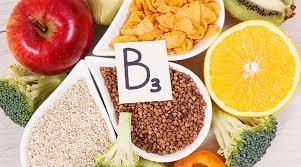Vitamin B-3 or niacin is very important for health. It helps in keeping our nervous system, digestive system and skin healthy. But, its excess over a long period of time can increase the risk of many diseases. A recent study published in Nature Medicine on Vitamin B found a strong relationship between high amounts of Vitamin B and heart patients.

Researchers at America's National Health Research Institute found that excess niacin can directly affect heart health by triggering inflammation. Due to this, the walls of the veins can become thick. This thickening can obstruct blood flow. Due to which the risk of damage to tissues and organs including the heart increases.
To explore the link between niacin and heart disease, researchers funded by the NHLBI took blood samples from more than a thousand people to examine small molecules whose levels were associated with heart disease independently of traditional risk factors. Can predict danger. They found that two by-products of high niacin intake (known as 2PY and 4PY) were directly linked to heart attacks, strokes and other cardiovascular risks.
Sources of Niacin
Vitamin B3 or niacin is found in abundance in yeast, milk, meat, tortillas and cereals. Most people do not need to take niacin supplements, because it is supplied by diet.
Symptoms of niacin overdose
- Redness and tingling on the face and neck
- Nausea and vomiting
- Headache
- Weakness
- Liver damage.
Doctors' advice

: Doctors say that consuming 14-18 mg of niacin daily is sufficient. Consuming it in excess can increase the risk of heart attack and stroke. Therefore, it is important to consult a doctor before taking niacin supplements. Also keep in mind that pregnant and lactating women should not take niacin supplements.
Photo Credits: Google










